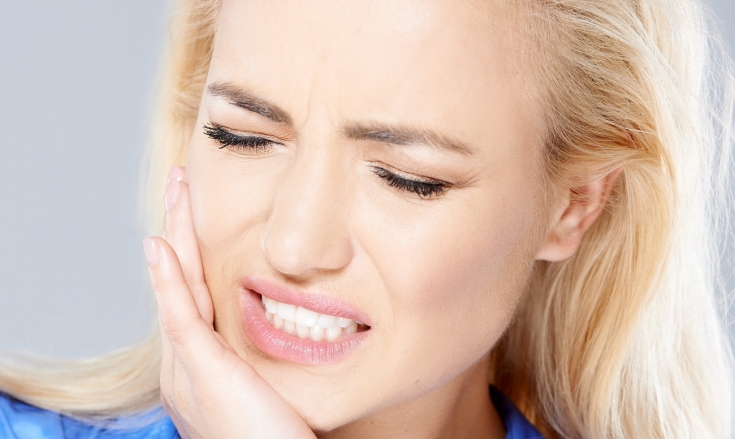Psychologists note that the modern pace of life forces many people to constantly be in a state of tightly clenched teeth. And often clenched teeth – this is not a figure of speech, but a real strong muscle tension in the jaw area, which a person does not even notice. Spasm of masticatory muscles during clenching of the jaws causes gnashing of teeth – bruxism, usually at night while sleeping. A dentist can detect bruxism by the characteristic abrasion of the teeth and trauma to the periodontal tissues. According to estet-portal.com, often this specialist becomes the first one who draws the patient's attention to the problem and suggests ways to solve it.
The reasons for the development of bruxism in terms of different theories
Paroxysmal grinding of teeth during the night's sleep does not happen only to nervous businessmen. Almost half of the children in the period of milk bite grind their teeth in their sleep. In adults, this problem occurs in about one in ten patients. As a rule, bruxism is based on a complex of different reasons.
• Psychological theory. It is assumed that grinding teeth reflects affective states, nervous overload, stress, and emotional distress. It is believed that during a night's sleep, a person ceases to control his involuntary muscle contractions, and teeth creak. It should be noted that short-term episodes of bruxism can also occur against the background of positive strong emotions.
• Neurogenic theory. Bruxism can develop due to damage to the trigeminal nerve and, as a result, increased tension in the masticatory muscles. Movement disorders can be explained by disorders of the central and peripheral nervous systems. This theory is supported by the fact that gnashing of teeth is often combined with snoring, somnambulism, and enuresis.
• Dental theory. From a dentist's point of view, bruxism can be attributed to malocclusion, dental anomalies, ill-fitting and fitting braces or dentures, and temporomandibular joint arthrosis.
• Osteopathic theory. Osteopaths are ready to interpret bruxism as an attempt by the neuromuscular system to balance its work in osteochondrosis of the cervical spine.
xxxx>• Osteopathic theory. Osteopaths are ready to interpret bruxism as an attempt by the neuromuscular system to balance its work in osteochondrosis of the cervical spine.
Less popular and unconfirmed theories of bruxism – nasal breathing disorder, gastroesophageal reflux, helminthiases.
The abuse of antidepressants and sleeping pills, caffeine, nicotine can intensify and increase the frequency of manifestations of bruxism.

Manifestations of bruxism and unpleasant consequences of grinding of teeth
Bruxism is manifested by the sound of grinding and clicking teeth. The episode lasts no more than 10 seconds, but can be repeated several times a night. Grinding of teeth may be accompanied by changes in breathing and pulse. A person does not wake up from grinding his teeth, so the symptoms of bruxism are most often noticed by the patient's close people.
The morning aftereffect of bruxism can be facial myalgia, headache, pain in the jaw area.
Night grinding of teeth – far from harmless phenomenon from the point of view of the dentist. If characteristic signs of bruxism are detected during a routine examination, the patient should be warned about the high probability of the following consequences:
• abrasive tooth wear;
• chips and cracks in tooth enamel;
• fractures of dental crowns;
• injury to the periodontal tissues and periodontitis;
• breakage of dentures. Remote, but equally unpleasant consequences of untreated bruxism can be hypertrophy of masticatory muscles, joint pain – and not only the temporomandibular, but also the shoulder. Permanent traumatization of the oral mucosa is fraught with
the development of gingivitis,fibromas.
Features of complex therapy for manifestations of bruxism
Medication is aimed at reducing convulsive spasms of the masticatory muscles. These can be magnesium and B vitamins, mild sedatives.
In the treatment of bruxism, injections of botulinum toxin preparations can have a good effect.
Dental care involves the use of protective mouthguards made of rubber or soft plastic. After eliminating the key causes of bruxism, it is possible to proceed with the correction of the bite, prosthetics or implantation, restoration of aesthetic defects that have arisen due to excessive clenching of the teeth.
You might be interested in:






Add a comment